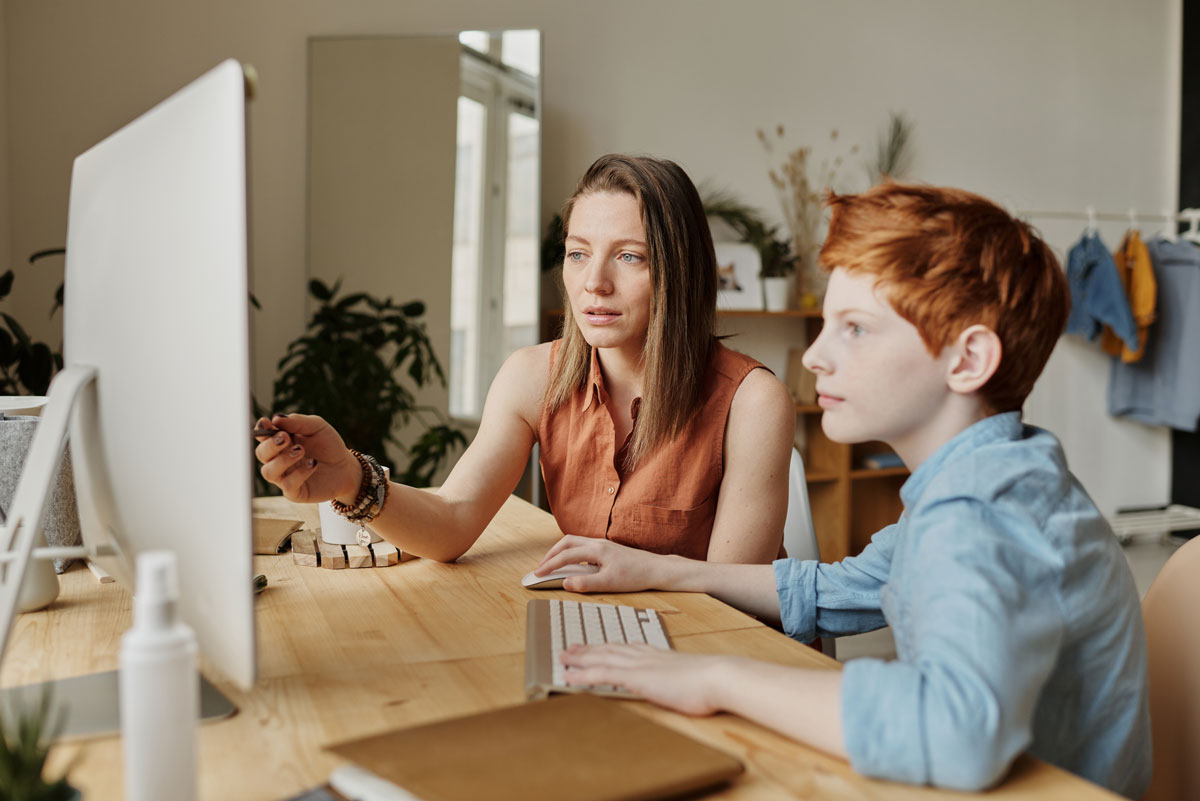
As Melburnians cope with Stage 3 restrictions – including adjusted learning environments – at school or at home, what can parents do to help their children? Wesley’s Counselling Team has some answers.
We’ve managed eLearning before and know what works best, but we also now know just how hard it can be adjusting to a new ‘normal’ and the fresh challenges it brings. Change, by definition, requires us to adapt and can produce extra stress and emotional distress, so it’s a timely opportunity to reflect on a few key strategies that can help.
Security and routines
Making sure that the basic needs are being of your child or young adult are being met improves learning. Children and young adults need a sense of security, healthy eating and hydration, physical activity, good sleep, play and down time. Assisting them to recover from disappointment and stay calm when uncertainties loom helps them build their confidence and resilience.
Routines are important as they enhance feelings of security, so it’s useful to develop a general structure to the day that involves dedicated but flexible learning time, social time, recreation and down time. With many students having returned from a holiday period, it’s helpful to re-establish a more regular sleep cycle, exercise breaks and healthy eating habits. And make sure they drink enough water. Family routines such as shared mealtimes can also be a great time to check in on each other.
If your child is eLearning, it’s useful to make sure they a specific learning space just for them in an area your family shares. These spaces are preferable to a bedroom, where your child can feel isolated and supervision might be minimal. Every home is different, but it’s important to provide a quiet and comfortable space in which to learn, when possible.
Connection and communication
Some students have thrived in the virtual classroom environment, eLearning at home, while others really miss seeing their friends and interacting with their teachers at school. Everyone is going to be experiencing this time differently, so there’s no single solution to staying connected, but there are many ways to stay connected, through social media, playing games, writing letters on – gasp – paper and posting them in a stamped, addressed envelope. It’s important to be flexible about how our children connect to ‘their people’ and, when appropriate, to encourage them to talk to a trusted person about their feelings and concerns. You might ask, ‘Who else can you turn to for support when you’re feeling upset?’ ‘Who do you reach out to when needing help with your learning? Who else can you reach out to?’
While many of us are not able to enjoy being on campus and the easy communication and sense of connection that comes with it, we can all still communicate. Don’t hesitate to reach out to your child’s teachers or pastoral team if you have any questions or concerns about your child’s wellbeing or progress.
Monitoring and resources
Adjusting to change takes a great deal of personal energy. Your child may become tired, grumpy, even moody at home. The current environment is producing a great deal of uncertainty for us all, and many students will be understandably upset or disappointed about missing out on planned events and social occasions. It’s important that we acknowledge that these are normal responses to the situation and recognise feelings such as anger and anxiety. Validating your child’s feelings will help them feel safe and secure. It’s a good idea to regularly monitor your child’s wellbeing, and we encourage you to start and finish each day with a simple check-in. If your child is experiencing ongoing feelings of distress, or you feel that they’re not coping, you can call on their pastoral care team or your relevant campus counsellor.
And remember, surviving – and even thriving – in this ‘new normal’ is, like this article, a team effort.
We look forward to hearing from you anytime, and to seeing you in-person on the other side of this.
The members of the College Counselling Team include Kim Koot, Tom Horat and Rachel Liang at Glen Waverley, Dianne Anderson and Jana Firestone at Elsternwick, Deborah Eyles, Eliza Smith and Eliza Robinson at St Kilda Road, and Ash Milne across the College.
Additional resources for parents
Developed by author and parent educator Michael Grose, Parenting Ideas provides a range of online resources for families with children in early learning, primary and secondary school.
The Parents website, an Independent Schools Victoria initiative, features regular articles by psychologist, Andrew Fuller.
Year 12 student, Ash Hill, shares some tips for other students on staying productive and motivated while learning from home.
Wesley College Counsellor Jana Firestone explores ways to stay connected with others and build resilience.
